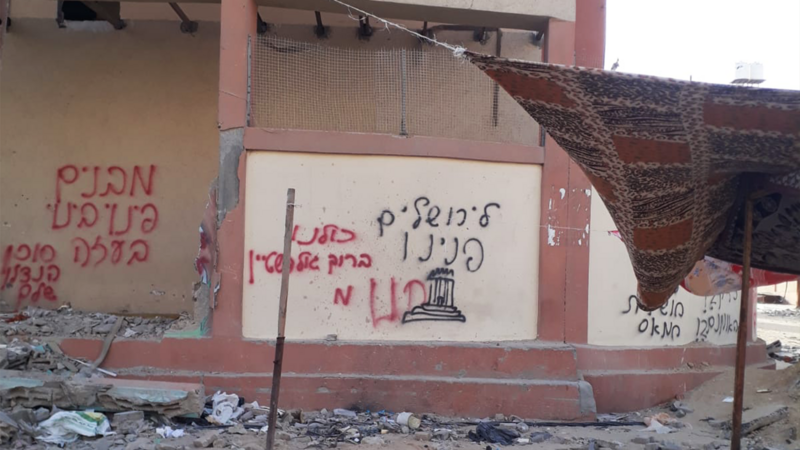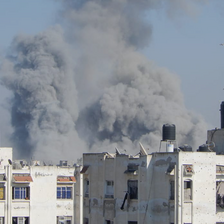The Electronic Intifada 27 June 2024

“We are all Baruch Goldstein,” declares one of the messages on this wall.
A scene of mass destruction awaited us when we returned to Khan Younis in southern Gaza after being displaced for months. Among the things that caught our attention were how Israeli soldiers had written Hebrew-language messages on the walls in areas they had attacked.
One of these messages read, “We are all Baruch Goldstein.”
Baruch Goldstein was the settler from New York who massacred 29 men and boys as they prayed at Hebron’s Ibrahimi mosque in the occupied West Bank during February 1994.
The message written in Gaza appears to endorse the indiscriminate killing of Palestinians. It indicates, too, that some of the troops perpetrating the current genocide hold far-right views.
Although the Hebron massacre was condemned internationally, Goldstein’s admirers are now represented in Israel’s ruling coalition. Itamar Ben-Gvir, Israel’s national security minister and one of the politicians demanding that the war in Gaza continues unabated, has named Goldstein as his hero.
On the same wall, soldiers appeared to make fun of how they are laying waste to Gaza.
“Buildings for clearing out and rebuilding in Gaza,” another message reads. The apparent “signature” on that message reads “your real estate agent.”
Yet another message on the wall says, “We are heading for Jerusalem.”
Elsewhere, soldiers have expressed a desire to “erase Gaza.”
Bizarrely, soldiers also seem to have used walls to try and impress Israeli women or at least to make romantic declarations.
“Noa, now all of Khan Younis knows that you are the love of my life,” a soldier wrote on what remains of one building. A large heap of rubble can be found beneath those words.
I was astonished to learn that soldiers were using the ruins of civilian infrastructure for such purposes.
Being displaced is a deeply traumatic experience for Palestinians. Returning to their homes and seeing that Israeli soldiers have left messages on their walls makes matters worse.
Donya Ahmad Abu Sitta is a writer in Gaza.
Dena Shunra provided translation.





